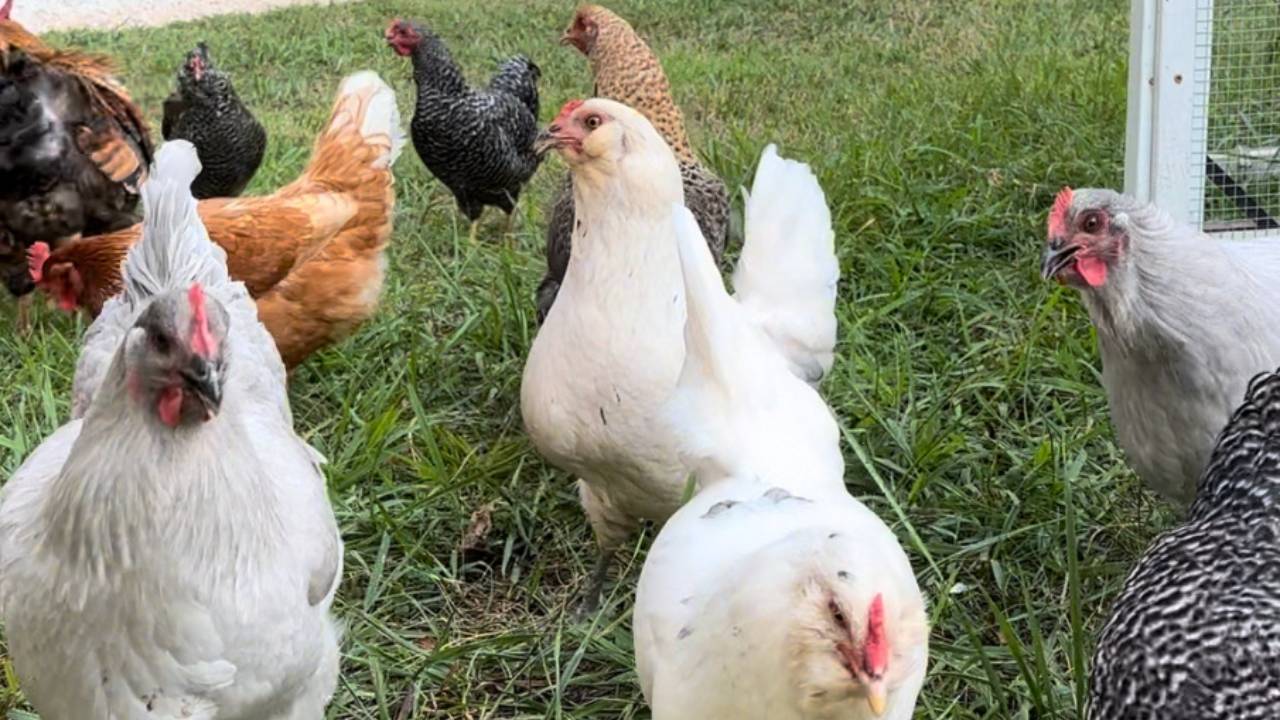How to Keep Your Chickens Healthy: 5 Biosecurity Tips for a Cleaner, Stronger Flock
Apr 22, 2025
If you’ve tried ordering chicks this spring and hit a wall, you’re not alone.
Hatcheries are overwhelmed. Egg prices are climbing. And chicken keepers everywhere are asking the same question:
What’s going on with sourcing chicks this year?
Let’s walk through what’s happening, what it means for your flock, and how to keep your chickens healthy no matter what spring throws your way.
🐣 WHY IS IT SO HARD TO FIND CHICKS RIGHT NOW?
One of the biggest reasons is the ongoing impact of avian influenza outbreaks — commonly referred to as “bird flu.”
In late 2024 and early 2025, several large commercial egg operations in the U.S. experienced outbreaks that led to the culling of millions of laying hens. The ripple effect?
✔ Higher egg prices
✔ Decreased supply
✔ Increased demand for backyard flocks
✔ Overwhelmed hatcheries nationwide
🦠 IS BIRD FLU NEW?
Nope.
Just like the human flu, avian influenza has been around for decades. It mutates, cycles through new strains, and resurfaces seasonally — especially when flocks are stressed or crowded.
So while the virus isn’t going away, there are ways to protect your birds.
And that’s where biosecurity comes in.
🔐 WHAT IS BIOSECURITY?
Biosecurity is just a fancy word for:
Keeping disease out of your coop before it starts.
It’s about prevention. And it’s something every chicken keeper can practice — whether you’re raising 3 hens in the backyard or 30 birds on pasture.
Here are a few simple but powerful biosecurity habits we follow at Cotton River Farm:
🧼 1. KEEP IT CLEAN — AND MOVING
Our number one tip?
Keep your flock moving. That’s why we raise pastured poultry.
When chickens live in a stationary coop, waste builds up.
Moisture lingers. Ammonia levels rise. Flies come. Illness follows.
But when you move your coop to fresh grass daily or every few days, your chickens stay cleaner, your workload shrinks, and your birds thrive.
Less mess. Less scrubbing. More natural living.
If you do have a stationary coop plan regular cleanings, keep bedding dry, and ensure adequate ventilation.
🪴 2. FEED FOR IMMUNE SUPPORT
We feed a balanced, high-quality feed with oregano and probiotics — two natural ways to support immune and gut health.
We also regularly add probiotics and electrolytes to our waterers, especially during transitions, travel, or anytime we introduce new birds.
Remember: gut health = immune health (for birds and humans!)
🪣 3. SANITIZE YOUR FEEDERS + WATERERS
Bacteria, mold, and algae love warm, damp places.
We clean out all feeders and waterers regularly and keep wild birds out of our setup as much as possible. If you have multiple flocks or species (like chickens and quail), it’s best practice to:
✔ Use dedicated feed + water containers for each group
✔ Keep supplies separate to avoid cross-contamination
✔ Clean them often — even if they look clean
🚫 4. QUARANTINE NEW BIRDS
We know. It’s tempting to skip.
But if you’re bringing in new birds this spring, please quarantine them — even if they come from a reputable source.
Respiratory illness, mites, lice, and other problems often show up after the stress of travel.
Your quarantine setup doesn’t have to be fancy — an old wire dog crate works great. Just give them their own space, feed, and water for about 30 days.

👀 5. DO DAILY CHECKS
One of the easiest prevention tools?
Daily treat time = health inspection time.
Look at:
-
Eyes + beak
-
Posture + energy
-
Feathers + breathing
-
Eating + walking normally
You don’t need to hover. Just train your eyes to spot anything “off.” A few seconds a day can lead to early intervention when it matters most.
Chickens are great at hiding illness — so early detection makes all the difference.
FINAL THOUGHTS
Raising chickens doesn't have to feel overwhelming.
With a few simple habits — like keeping things clean, staying consistent, and being proactive instead of reactive — you can set your flock up for long-term health.
Biosecurity isn’t about doing everything perfectly.
It’s about being mindful, paying attention, and building daily rhythms that protect the animals in your care.
Whether you’re just starting out or have been raising birds for years, remember:
You’re learning. You’re growing. And every step you take toward a cleaner, more intentional setup makes a difference — for your flock and for you.
See you on the farm,
- Natalie
Purchasing through affiliate links helps support our blog at no cost to you. As an Amazon Associate, I earn from qualifying purchases—thank you for your support!

